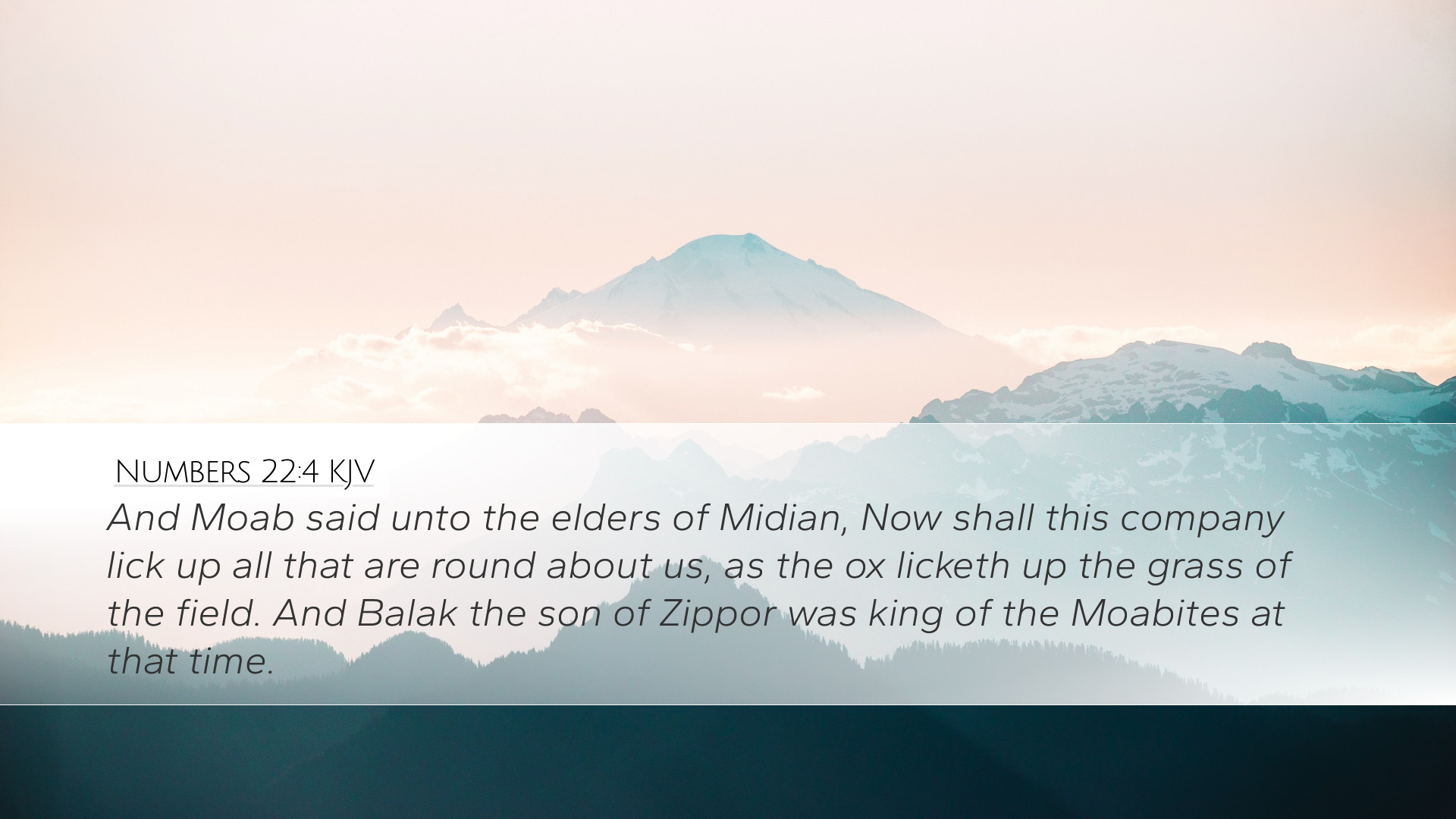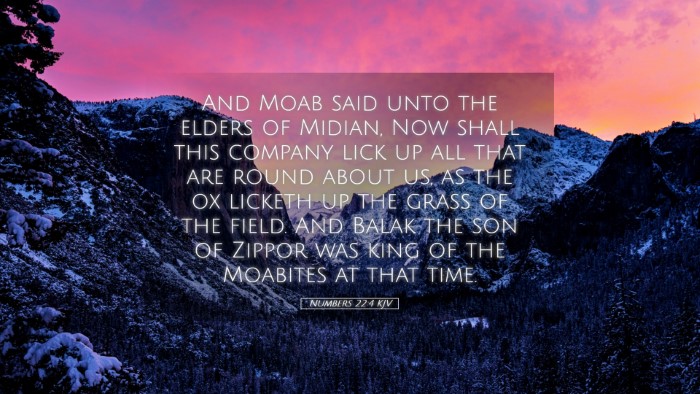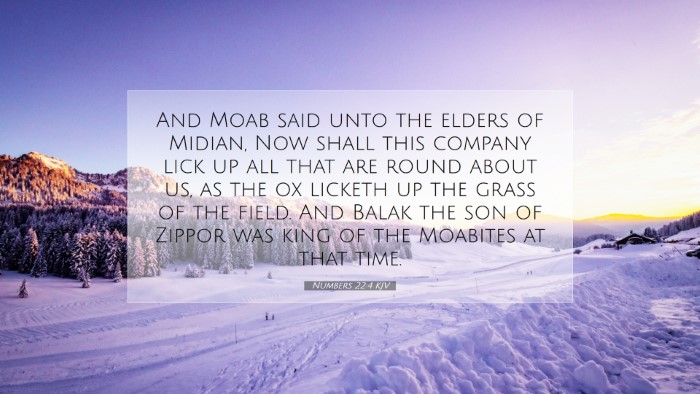Bible Commentary on Numbers 22:4
Verse Reference: Numbers 22:4 (KJV) - "And Moab said unto the elders of Midian, Now shall this company lick up all that are round about us, as the ox licketh up the grass of the field. And Balak the son of Zippor was king of the Moabites at that time."
Contextual Background
The narrative surrounding Numbers 22:4 occurs in a defining moment in Israel’s wilderness journey as they approach the Promised Land. Following their exodus from Egypt, the Israelites have started to establish their identity as a people and experience numerous victories over surrounding nations. The response of the Moabite king, Balak, serves as a backdrop for the ensuing narrative about Balaam, illustrating the tension between God’s people and those who oppose them.
Understanding the Text
The phrase "lick up" reflects both the immensity of the Israelite numbers and the fear they invoke. The imagery suggests total consumption or domination, much like an ox consuming grass in a field. Balak's concern illustrates a typical response from nations threatened by Israel's presence, where the Israelites are seen not merely as a people but as an existential threat to surrounding nations.
Moral and Theological Implications
- Dependency on Divine Intervention: The fear expressed by Balak shows a reliance on human wisdom to address spiritual threats. There is an implicit understanding that Israel's progress is not merely political but divine.
- Nature of Spiritual Warfare: Just as Balak sought a way to counteract the Israelites, modern believers must recognize that spiritual attacks often come from those who feel threatened by their faith and witness.
- God’s Sovereignty: The unfolding events from this moment highlight God’s control over nations and leaders, and the futility of opposing His purposes.
Commentary Insights
Matthew Henry
Matthew Henry emphasizes the absurdity and desperation in Balak’s request to the elders of Midian, noting that the fear of the Israelites prompted a coalition against them. He points out that the Moabites’ anxiety reflects a broader truth about the world needing to confront the power of God as seen in His people. Balak’s strategy, Henry suggests, reveals human folly in trying to thwart divine plans through alliances and sorcery.
Albert Barnes
Albert Barnes elaborates on the significance of Balak's character and call to the elders of Midian. He highlights that Balak was an established King, whose actions show both political acumen and fear-based reaction towards Israel. Barnes underscores that the metaphor of "licking up" underscores both the power of the Israelites as a fierce and formidable people and the acute sense of vulnerability felt by Balak. The imagery is significant, showcasing how people perceive threats differently and the lengths to which they will go to protect their interests.
Adam Clarke
Adam Clarke assesses Balak’s tactics in light of the Moabite culture, describing the mingling of political intrigue with religious considerations. Clarke points out that the phrase suggests not just physical consumption, but a spiritual dominance as well. He posits that Balak’s consultation with Midian reflects a proactive approach in rallying support against a perceived overwhelming enemy. Clarke also draws attention to how the Israelite presence is a catalyst for coalition-making among nations, a theme that resonates throughout biblical history.
Application for Today
Believers and leaders today can draw several lessons from Numbers 22:4:
- Recognizing God’s Authority: Just as the Israelites were a visible manifestation of divine authority, the church today stands as a testament to God’s power and call for righteousness. Believers must be aware of their influence and responsibility in the world.
- Responding to Opposition: The best response to opposition is reliance on God rather than fear or human strategy, recognizing His ultimate control over outcomes.
- Understanding Context: Not all who oppose the church do so from an evil intent; often, it comes from a place of misunderstanding or a sense of being threatened. The Christian community is called to respond with grace and wisdom.
Conclusion
Numbers 22:4 serves as a pivotal intersection of fear and faith, illustrating the dynamics between nations in biblical history and the overarching sovereignty of God. The intricacies of the text reveal much about human nature, divine purpose, and the spiritual battles that persist through the ages. As modern readers and scholars, it is imperative to glean insights from both the text and historical contexts, allowing these reflections to inform our practice and belief systems today.


